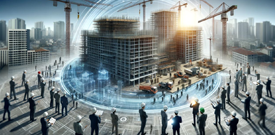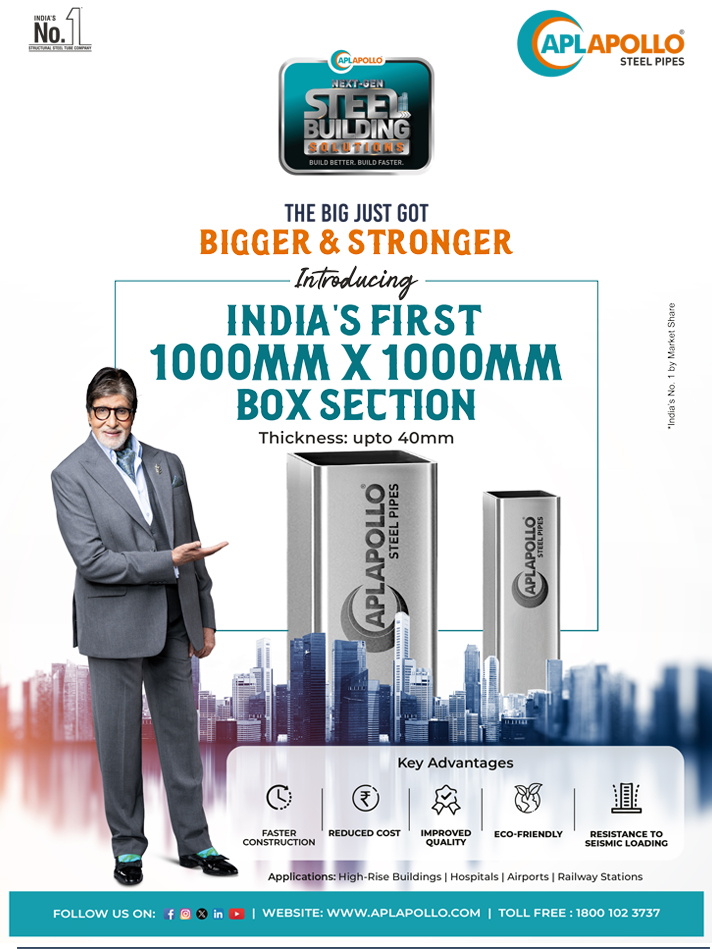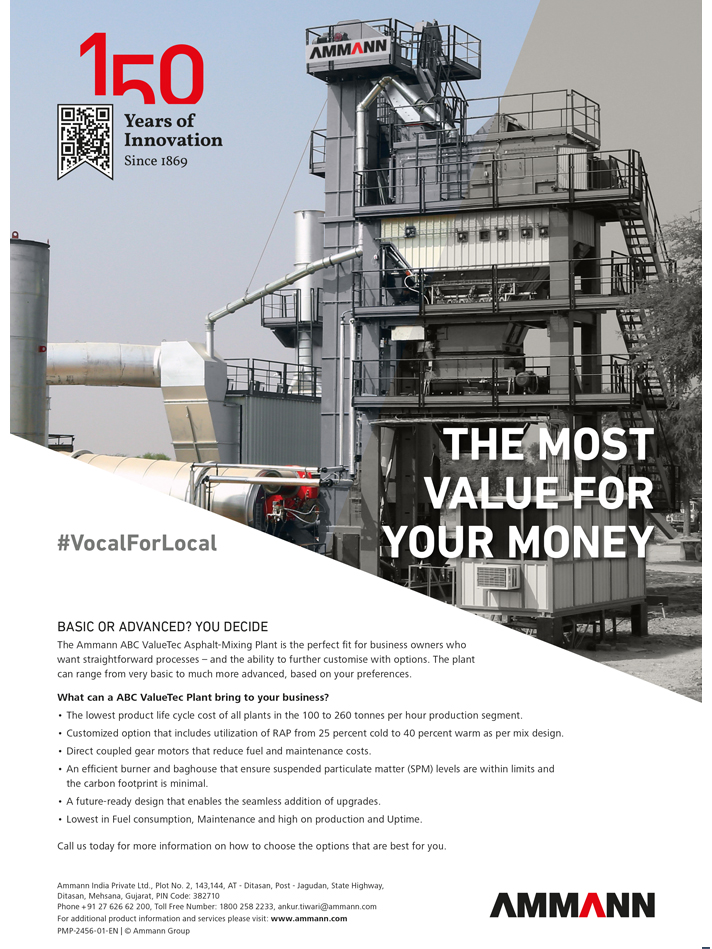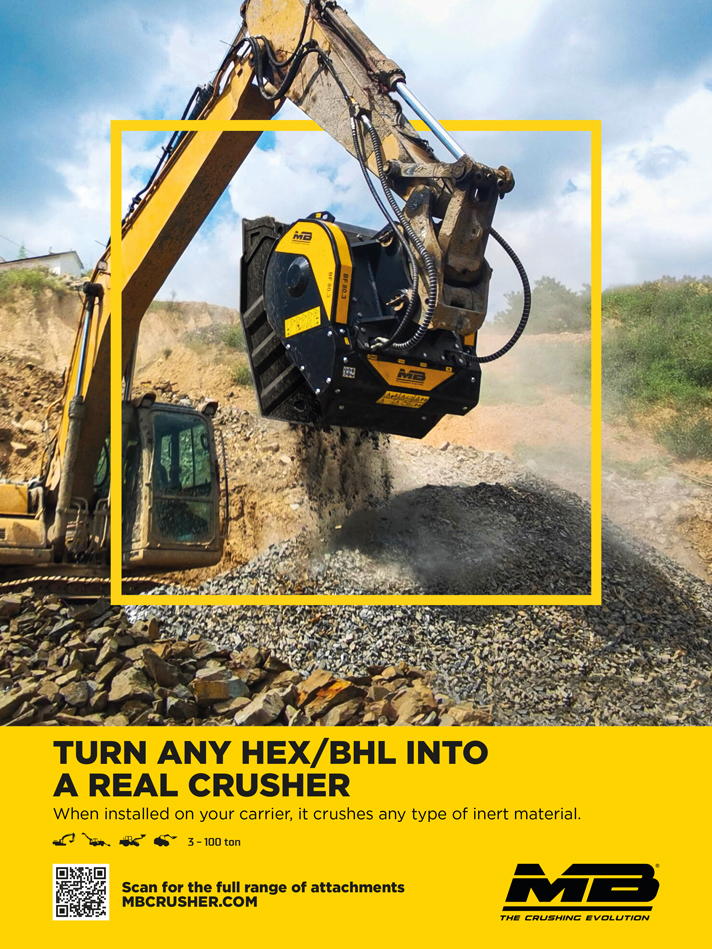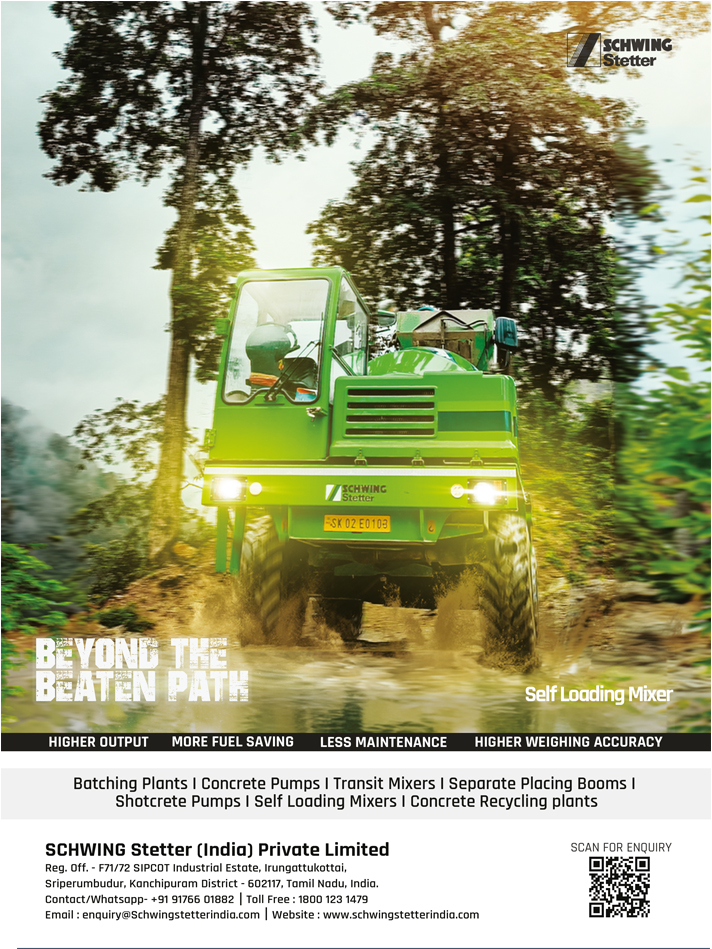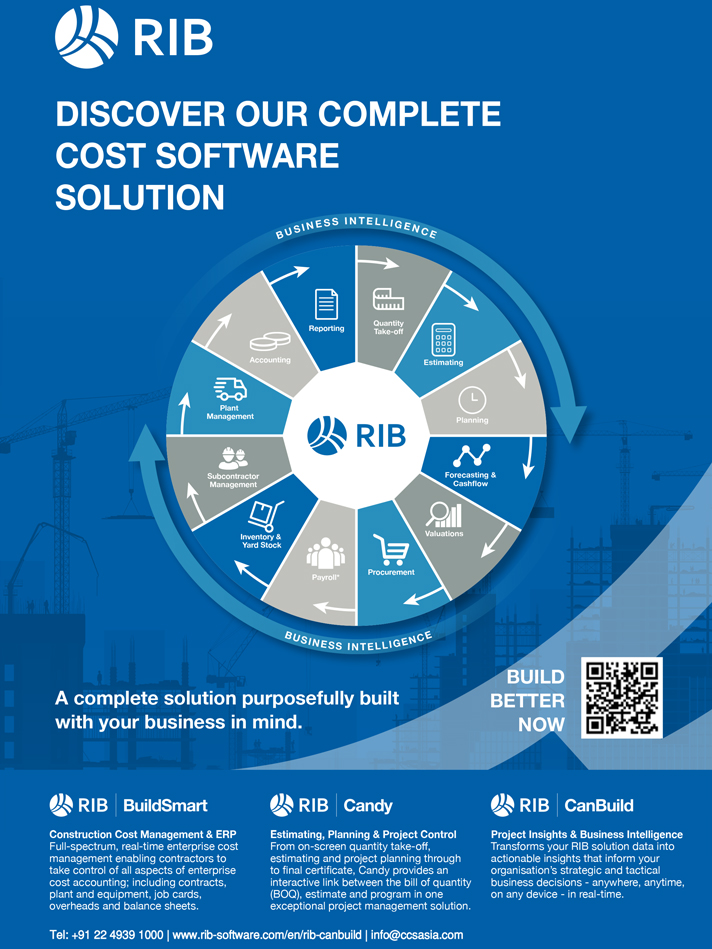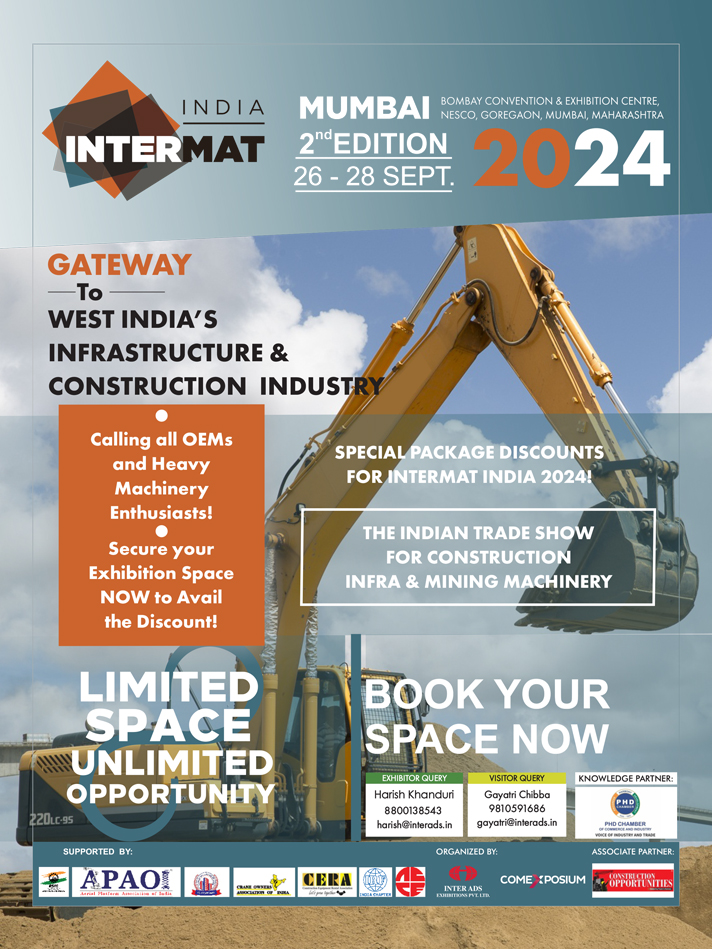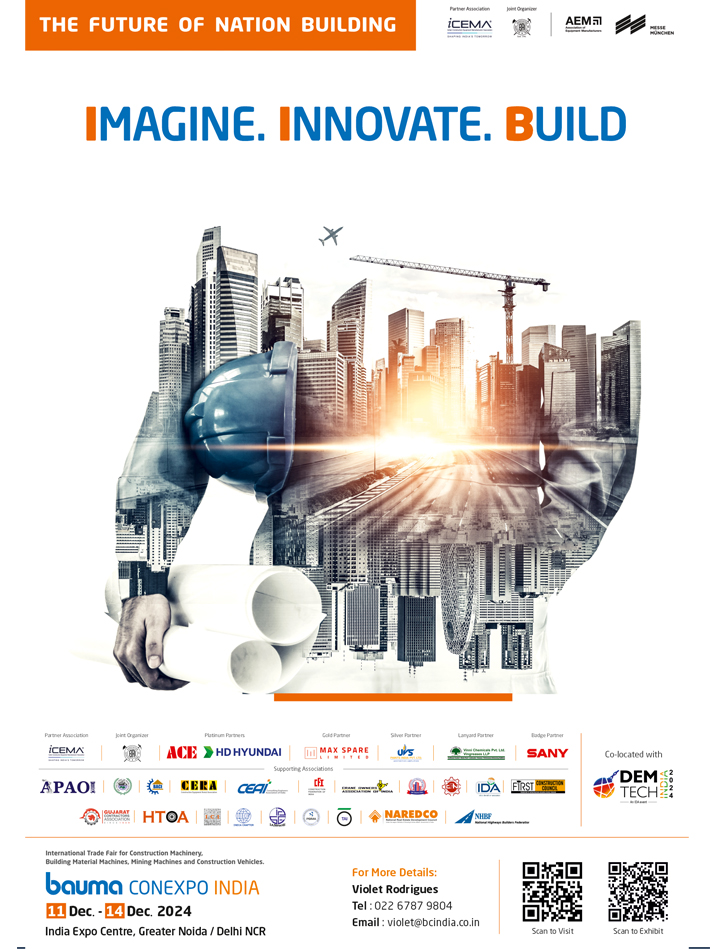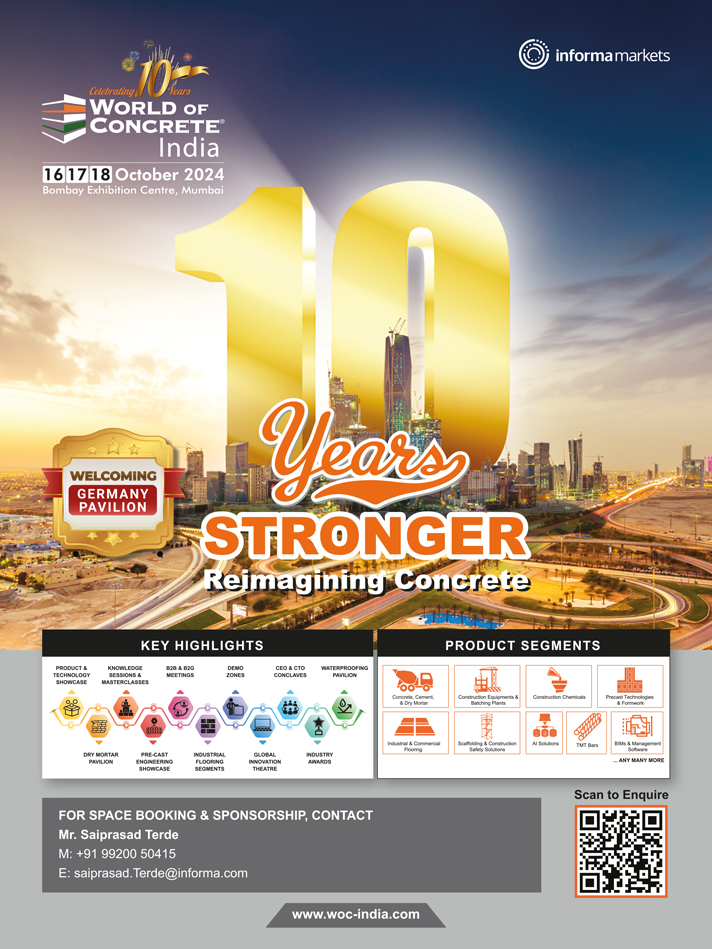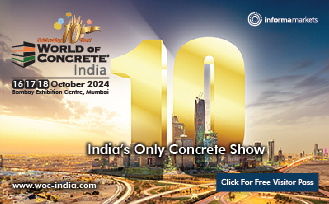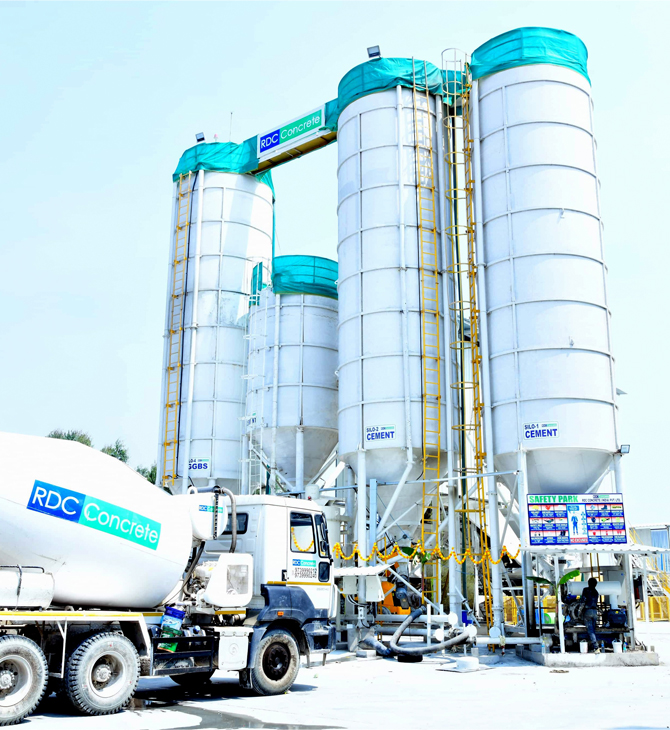
RDC Concrete is renowned for its innovative and cost-effective building solutions that cater to diverse client needs
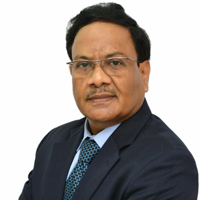
RDC Concrete has established itself as the leading & largest manufacturer and supplier of Ready Mix Concrete (RMC) in India since 1993. In an exclusive interview to CONSTRUCTION OPPORTUNITIES,
ANIL K BANCHHOR MD & CEO OF RDC CONCRETE, gives an overview of the RMC industry, his company’s product offerings, new launches and lot more.
Give us an overview of the current ready mix concrete industry, latest trends and sector challenges.
Ready-mix concrete (RMC) is a type of concrete that is manufactured in a batch plant according to a set recipe and then delivered directly to a construction site in a truck-mounted mixer. The RMC industry in India has been growing rapidly over the past few years due to the increasing demand for quality concrete for construction activities in the country.
According to a report by Research and Markets, The RMC sector in India is growing rapidly at a pace of 15-20% annually. Now it is globally expected to grow at a CAGR of 7.47%. One of the primary drivers of the growth of the RMC industry in India is the increasing demand for infrastructure development, industrialization, residential and commercial projects. The government’s initiatives, such as the Smart City project, Pradhan Mantri Awas Yojana (PMAY), and Atal Mission for Rejuvenation and Urban Transformation (AMRUT), have further boosted the demand for RMC in the country.
However, the RMC industry in India is also facing some challenges, including the land availability in metro cities, unorganized supply chain, and no entry issues during demand time, high fixed costs. In terms of the demand-supply gap, there is currently a shortage of RMC plants in India, particularly in Tier-II and Tier-III cities. This gap is primarily due to the lack of awareness among some builders and contractors about the benefits such as durability and better quality due to RMC as compared to site mix, as well as the high initial costs associated with setting up RMC plants. However, the increasing demand for RMC in the country is expected to drive the growth of the industry, and the supply is likely to catch up with the demand in the coming years.
Tell us about the RMC products offered by your company. What are the USP’s of your products Vis-à-vis competition. Advantages of using your RMC in terms of savings on construction cost, time, and labour.
RDC Concrete is renowned for its innovative and cost-effective building solutions that cater to diverse client needs. They offer eco-friendly products like Greencrete with lower embodied energy,
Duracrete for durability and low maintenance, Crackfree concrete for corrosion protection, and Naturecrete for water percolation. They also provide dry and wet concrete bags for small repair jobs, Selfcrete for complex structures, and specialized products like Tempcrete, Supercrete, Fastrackcrete, and Fibrecrete. RDC Concrete maintains high-quality standards with rigorous quality control and prioritizes cleanliness and safety in their facilities.
Utilizing ready-mixed concrete (RMC) as a substitute for traditional cement in construction infrastructure offers a multitude of environmental and sustainability advantages. Firstly, RMC production is notably more energy-efficient compared to on-site cement mixing, resulting in a reduced carbon footprint and fewer greenhouse gas emissions. Additionally, RMC batching plants allow for precise material proportions, minimizing waste and resource consumption. This efficient resource utilization extends to incorporating supplementary cementitious materials (SCMs), such as fly ash or slag, which reduces waste and conserves natural resources. Moreover, RMC production in controlled environments minimizes dust and particulate emissions, improving air quality in the vicinity.
The ready-to-use nature of RMC reduces construction time, leading to energy efficiency and lessening the environmental impact of construction activities. Furthermore, RMC’s durability properties contribute to longer-lasting structures, reducing maintenance and conserving resources.
By facilitating the use of recycled materials and implementing water management strategies, RMC promotes sustainable construction practices. Overall, RMC aligns with eco-friendly goals, promoting reduced carbon emissions, resource conservation, and sustainable construction practices.
Is India’s construction sector ready for high-end RMC products having niche applications. Which RMC Grades have maximum demand. What are their applications.
India’s construction sector is gradually embracing high-end RMC products for specific applications, but these remain a small segment compared to standard RMC.
Common RMC grades include M20-M30 for residential and small-scale projects, M35-M60 for larger constructions and industrial projects, and M70-M100 for specialized applications like nuclear plants and high-rises.
The demand is rising for niche RMC products like self-compacting, fiber-reinforced, and high-performance concrete, offering enhanced performance and durability for specialized projects such as high-rises and bridges.
As a manufacturer tell us about the critical challenges faced while introducing high end products in India? To what extent does cost influence a customer’s purchasing decision?
Introducing high-end products in India’s construction industry presents challenges, primarily due to limited awareness among builders and contractors about the benefits of RMC, including durability and better quality compared to on-site mixing.
High initial setup costs for RMC plants also deter adoption. Cost significantly influences a customer’s purchasing decision in this context. The RMC industry in India faces various challenges, such as land availability issues in metro cities, an unorganized supply chain, entry barriers during peak demand times, and high fixed costs. There’s currently a shortage of RMC plants, particularly in Tier-II and Tier-III cities. Despite these challenges, the increasing demand for RMC is expected to drive industry growth, and supply is likely to catch up with demand in the coming years as awareness and understanding of RMC’s benefits continue to grow.
Tell us of the new products you have introduced or plan to launch in the near future.
To meet the rising demand for faster-setting concrete in construction, we recently partnered with our subsidiary, Ultrafine, to create a new product. However, a road accident involving one of our employees due to potholes prompted our R&D team to shift their focus towards developing quick-hardening concrete specifically for non-disruptive pothole repairs. After extensive testing, we successfully formulated Pot-Crete, a high-performance concrete offering both strength and durability. Following successful trials by BMC and KDMC civic bodies, a major company in Oman has chosen to purchase Pot-Crete from us. This innovative product allows for a swift and seamless pothole repair process, taking only 5 minutes, thus preventing road blockages and traffic jams.
Please tell us about the Green Virtues of your RMC. How eco-friendly are your products. What is the company’s approach towards innovation, environment and sustainability?
Our extensive research and development efforts have led to the creation of VAS products that prioritize environmental sustainability in concrete solutions. One such product is RDC GreenCrete, specifically engineered to promote eco-friendliness and environmental protection. In comparison to traditional concrete, RDC GreenCrete boasts a significantly lower carbon footprint, benefiting the environment in two significant ways. Firstly, it reduces the need for extensive limestone quarrying by incorporating more supplementary materials. Secondly, it lowers the heat of hydration, resulting in a substantial reduction in the project’s overall carbon footprint, contributing to long-term sustainability. Another product in our VAS range is RDC NatureCrete, a low-fines concrete solution designed to replenish groundwater tables. Thanks to its porous design, water infiltrates the ground instead of running over the concrete surface, reducing the risk of flooding and runoff.
Your strategy in a price sensitive market like India
In a price-sensitive market like India, our approach involves optimizing various aspects:
Cost Efficiency: We have streamlined our production processes, focusing on efficient resource management, energy-saving practices, and waste reduction to lower manufacturing costs.
Customer-Centric Approach: We prioritize exceptional customer support and swift resolution of concerns, ensuring customer satisfaction and loyalty to our brand.
Tech Integration: We employ technology for seamless order placement, tracking, and scheduling, enhancing both operational efficiency and the overall customer experience.
Major problems faced in maintaining consistency of quality in your RMC products?
We are assertive in the quality of our concrete products; we have a robust quality control system in place that allows us to mitigate the challenges posed by the ever-changing properties of raw materials. And we take pride in maintaining the cleanest plants and storage facilities in the industry, ensuring the highest levels of product quality and the health and safety of our employees and associates.
Please share details about your manufacturing units – location, capacities, and investments? In which sectors do you expect demand in the coming years?
As of Sept, 2023, we have 96 operational manufacturing plants located across India, delivering 3.5 Lakh m3 per month to different segments. We have set up a goal of having plants in every state and each Union territory. Our expansion into new states will enable us to meet the growing demands of our customers and drive future growth. Looking ahead, we have even more ambitious plans to launch 100 plants by the end of the year, and are always on the lookout for opportunities to expand our operations and increase our market presence. Our unwavering focus remains on delivering top-quality products and services to our customers, while pursuing sustainable growth for our company.
What kind of government policy will foster growth of the RMC sector?
To foster RMC sector growth, governments should consider:
- Infrastructure Investment: Allocate substantial funds for projects like roads, bridges, and housing, boosting RMC demand.
- Recycling Incentives: Encourage recycling in construction, promoting the use of recycled materials in RMC.
- Streamlined Permits: Simplify RMC plant setup permits to attract more industry players.
- Energy Efficiency Incentives: Offer rewards for eco-friendly RMC production and renewable energy usage.
- Waste Management Rules: Enforce responsible waste disposal regulations for RMC production and construction.
These policies support economic development, infrastructure enhancement, and eco-sustainability in the RMC sector.
Future outlook on RMC in India, from industry and from a company perspective.
In the coming years, India’s construction industry will witness a significant shift towards ready-mix concrete (RMC) over traditional site-mixed concrete, primarily driven by its lower environmental footprint. This transition will be propelled by factors such as the growing emphasis on sustainable construction practices, technological advancements, extensive infrastructure development, a focus on quality and performance, tailored RMC solutions, cost-efficiency, and strict adherence to safety standards. These dynamics are poised to shape a future for the RMC sector in India that is more sustainable, efficient, and customer-centric.


